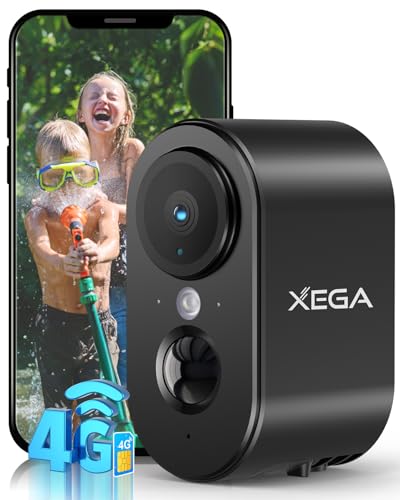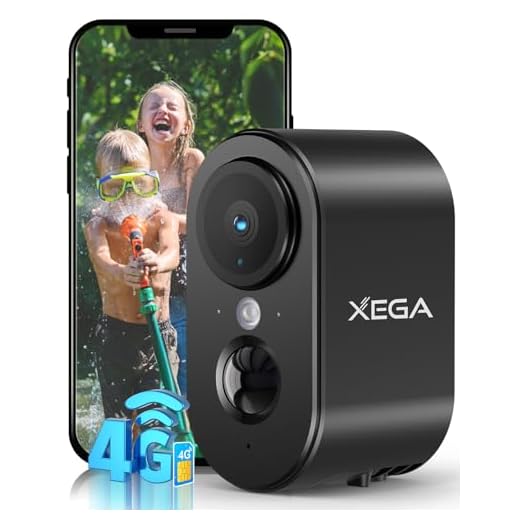
Home security cameras have become an essential part of ensuring the safety of our homes and loved ones. However, many security cameras on the market today rely on a wifi connection for remote access and monitoring. But what if you don’t have wifi or want to avoid the potential security risks associated with wireless connections?
Fortunately, there are alternatives available for those looking for a home security camera that doesn’t require wifi. Some cameras use local storage options like SD cards or cloud-based storage that don’t rely on a wifi connection for recording and storing footage. These cameras offer a secure and reliable way to monitor your home without the need for a wireless network.
Whether you’re concerned about wifi security or simply don’t have access to a reliable wifi connection, there are home security camera options that can meet your needs. By exploring non-wifi security camera options, you can find a solution that provides peace of mind without compromising on security.
Non-Wifi Home Security Cameras
When it comes to home security cameras, many options rely on a wifi connection for remote monitoring and recording. However, if you are looking for a camera that doesn’t require wifi, there are still viable options available. These non-wifi home security cameras provide a reliable way to monitor your property without the need for a wireless network.
Benefits of Non-Wifi Security Cameras
Non-wifi security cameras offer several advantages, including:
- Reliability: These cameras operate independently of wifi signals, ensuring continuous monitoring even in areas with poor connectivity.
- Privacy: With no wifi connection, the risk of hacking or unauthorized access to your camera feed is significantly reduced.
- Easy Setup: Non-wifi cameras are often simple to install and use, making them ideal for users who prefer a plug-and-play solution.
While wifi-enabled cameras are popular for their convenience, non-wifi security cameras offer a dependable alternative for those seeking a more secure and stable monitoring solution.
Benefits of Wifi-Free Security Cameras
Wifi-free security cameras offer several advantages over their wifi-enabled counterparts. Here are some benefits:
1. Increased Security
Since wifi-free security cameras do not rely on an internet connection, they are less vulnerable to hacking and cyber attacks. This provides an added layer of security for your home or business.
2. No Dependence on Wifi
With wifi-free security cameras, you don’t have to worry about connectivity issues or signal interruptions. This ensures that your camera is always operational and recording footage when needed.
Overall, wifi-free security cameras provide a reliable and secure way to monitor your property without the need for a wifi connection.
Features of Wifi-Less Security Cameras
Wifi-less security cameras offer a range of features that make them ideal for use in areas without a stable internet connection. Some of the key features include:
Local Storage
One of the main advantages of wifi-less security cameras is their ability to store footage locally on a memory card or hard drive. This ensures that you have access to your recordings even when the internet is down.
Long Battery Life
Many wifi-less security cameras are battery-powered, allowing them to operate for extended periods without needing to be recharged. This makes them ideal for use in remote locations or areas without access to power outlets.
| Feature | Description |
|---|---|
| Night Vision | Most wifi-less security cameras come equipped with infrared LEDs for clear night vision recording. |
| Motion Detection | These cameras can detect motion and send alerts to your smartphone or other devices. |
| Weatherproof Design | Many wifi-less security cameras are designed to withstand various weather conditions, making them suitable for outdoor use. |
How to Set Up a Wifi-Free Camera
Setting up a wifi-free camera is a simple process that can provide added security to your home without the need for a wifi connection. Here are the steps to get your camera up and running:
| Step 1: | Choose a suitable location for your camera that provides a good view of the area you want to monitor. |
| Step 2: | Mount the camera securely using the included mounting hardware or a bracket. |
| Step 3: | Insert batteries or connect the camera to a power source. |
| Step 4: | Adjust the camera angle and focus to ensure the best view of the area. |
| Step 5: | Check the camera’s recording capabilities and settings to ensure it meets your needs. |
| Step 6: | Monitor the camera regularly to ensure it is functioning properly and capturing the desired footage. |
Comparison with Wifi-Enabled Cameras
While wifi-enabled cameras offer the convenience of remote access and real-time alerts, they come with the drawback of requiring a stable internet connection. This dependence on wifi can be a limitation in areas with spotty internet coverage or during power outages when the router is down.
Pros of Non-Wifi Security Cameras:
1. No Dependence on Internet: Cameras that don’t require wifi operate independently, ensuring continuous monitoring even without internet access.
2. Enhanced Privacy: With no wifi connection, the risk of hacking or unauthorized access to the camera feed is significantly reduced, enhancing the security of your home.
Cons of Non-Wifi Security Cameras:
1. Limited Remote Access: Without wifi, accessing camera footage remotely may be challenging, restricting your ability to monitor your home from a distance.
2. Lack of Smart Home Integration: Non-wifi cameras may not be compatible with smart home devices or automation systems that rely on internet connectivity.
Security and Privacy Concerns
When considering a home security camera that doesn’t require wifi, it is important to be aware of the security and privacy concerns that may arise. Without a secure internet connection, the camera may not be able to transmit data securely, leaving it vulnerable to hacking and unauthorized access.
Additionally, some cameras that operate without wifi may store footage locally on a memory card or internal storage. This raises concerns about the security of the stored data and the potential for it to be accessed by unauthorized individuals if the camera is stolen or tampered with.
Furthermore, without a wifi connection, the camera may not be able to receive software updates or security patches, leaving it exposed to vulnerabilities that could be exploited by hackers.
It is important to carefully consider these security and privacy concerns when choosing a home security camera that doesn’t require wifi and to take steps to mitigate these risks to protect your personal information and property.
Best Wifi-Free Home Security Cameras
If you’re looking for home security cameras that don’t require wifi, there are some great options available. Here are a few of the best wifi-free home security cameras:
1. Arlo Go: Arlo Go is a cellular-connected security camera that doesn’t rely on wifi. It works on its own data plan and can be placed anywhere within cellular coverage.
2. Reolink Argus 2: Reolink Argus 2 is a wireless security camera that can work without wifi. It has a rechargeable battery and can store footage locally on a micro SD card.
3. Blink XT2: Blink XT2 is a battery-powered security camera that doesn’t need wifi to function. It can be used both indoors and outdoors and offers motion detection and two-way audio.
These are just a few examples of wifi-free home security cameras that provide reliable surveillance without the need for a wifi connection.







